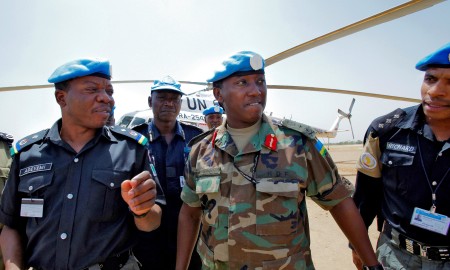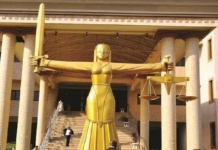Rwanda’s government has expressed its “outrage” at the arrest of intelligence chief Karenzi Karake at Heathrow on Saturday (June 20).

General Karake was arrested by Met police officers under a European Arrest Warrant on behalf of the Spanish authorities for ordering massacres in the wake of the 1994 Rwanda genocide. Williams Nkurunziza, Rwanda’s High Commissioner to the UK, has called the arrest “an insult to our collective conscience”. Prime Minister David Cameron’s official spokeswoman said it was an “operational matter” for the police who were legally obliged to act on valid European Arrest Warrants.
Louise Mushikiwabo, Rwanda’s foreign minister, called the arrest “an outrage” adding: “Western solidarity in demeaning Africans is unacceptable”.
Andrew Mitchell, former international development secretary, said he believed the arrest was a “reprehensible abuse” of the law.
In 2008, Spanish investigative judge Andreu Merelles indicted Karake for alleged war crimes along with 39 other current or former high-ranking Rwandan military officials.
Karake is also accused of ordering the killing in 1997 of three Spanish nationals working for Medicos del Mundo. But the Rwandan government is said to be puzzled by the timing of Karake’s arrest, as he has travelled to the UK several times since the indictment was issued.
Mr Nkurunziza told the BBC World Service: “We take strong exception to the suggestion that he’s being arrested on war crimes.
“Any suggestion that any of our 40 leaders are guilty of crimes against humanity is an insult to our collective conscience.”
Gen Karake was remanded in custody after appearing at Westminster Magistrates Court and he will reappear on Thursday. A spokesman for Spain’s National Court said it was now up to the British authorities to decide whether or not to extradite him.










